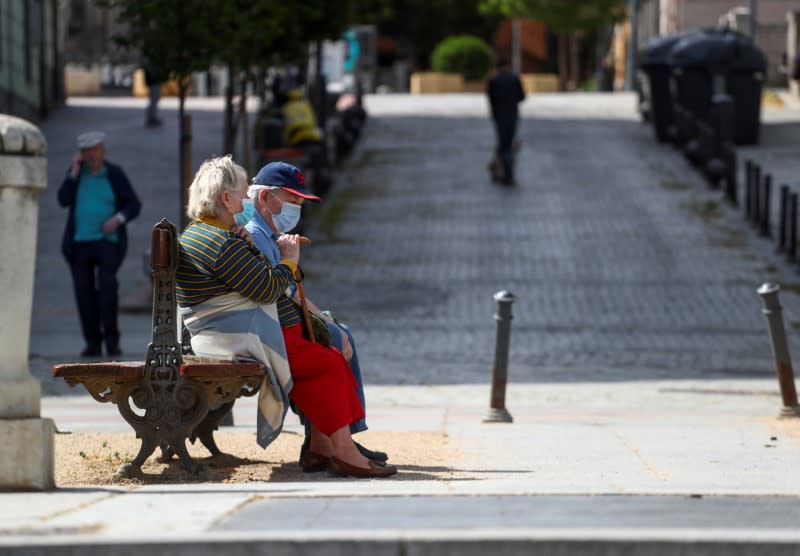Coronavirus impact improves sustainability of Spanish pension system
By Belén Carreño
MADRID (Reuters) - Spain saw a rare improvement in the long-term sustainability of its pension system in May, but the data gave no cause for celebration because it was mainly the result of the coronavirus crisis and increased deaths among the elderly.
Spain has been among European countries worst hit by the coronavirus pandemic, with the death toll now at 27,127. More than 80% of fatalities have been people aged 70 and older.
The old-age dependency ratio - a rough measure of how many workers support one retiree, which indicates how sustainable a pension system is - rose to 2.56 in May from 2.3 in April, data released by the social security system showed on Tuesday.
Over the past decade, the indicator has been steadily declining towards 2, the level which usually means the system is no longer sustainable.
"(The reversal) is an exceptional situation... Part of the improvement stems from the most dramatic part of the crisis, namely fatalities among pensioners," said Jose Ignacio Conde-Ruiz, deputy head of FEDEA think-tank.
However, the crisis has also caused delays in early retirement requests due to economic uncertainty, while state aid to furloughed workers has preserved many jobs for now, but the situation could easily reverse when it ends, he said.
"The labour market is very vulnerable, the workforce is preserved thanks (to the furlough aid)," Conde-Ruiz added.
Data last week showed about 30,000 more people exited Spain’s state pension system in the first four months of 2020 than in the same period in 2019, which authorities attributed at least partly to the pandemic.
At the same time, fewer pensioners enrolled in the system in January-April as government offices were shut by a nationwide lockdown.
Like most European countries, Spain operates a pay-as-you-go pension system. It costs 135 billion euros annually and is currently undergoing reforms to make it more sustainable.
(Reporting by Belén Carreño, editing by Andrei Khalip and Gareth Jones)



